Assisted Suicide as a Business
Is it Feasible?
Creating a For-Profit Assisted Suicide Business
A Perfect Finish makes a joke out of starting, running, and ruining a for-profit business about assistance-in-dying. At the end, the Photons present a plan for an actual business, which might just be viable–in Canada, not yet in the US.
Despite all the dying jokes, I did actually do a bit of research before writing the book (APF Research: 9,000 words). For those interested in the topic of assistance-in-dying, please consider the following books.
Researching A Perfect Finish
Assisted-suicide as a business exists only in Switzerland–the company Dignitas–according to Amy Bloom in her memoir In Love.
Jojo Moyes writes about the Swiss company in her novel Me Before You.
In The Art of Dying Well, Katy Butler offers practical advice for optimizing the end-of-life experience. In her book Knocking on Heaven’s Door, she tells about her experience with her father’s dementia, his pacemaker, and her mother’s exhaustion in caring for him. For those who don’t wish their loved ones to die hooked up to machines, I highly recommend reading it before dialing 911.
In When My Time Comes, Diane Rehm discusses right-to-die societal customs, spiritual implications, and laws.
In Final Exit, Derek Humphry offers real-world advice for the person who has made an end-of-life decision. For retired folks, he advocates assistance and his suggestions benefit not just the departing, but also consider those left behind. Throughout he advises: “don’t try this alone, boys and girls.”
Among the mentioned books, only Me Before You by Jojo Moyes is a work of fiction. While Moyes delves into the profound personal dimensions of assisted suicide, A Perfect Finish approaches the topic with a lighter touch, focusing on the potential pitfalls and complexities of the business side of the societal issue.
Extracts from Paperback Index
Using the paperback index as a guide, find additional information about the authors and experts who were actually quoted in A Perfect Finish.
- Byock, Ira Dr — a prominent American physician, author, and advocate for palliative care and the improvement of end-of-life care. “Final messages to loved ones will be based on the Four Things That Matter Most: Please forgive me; I forgive you; Thank you; and I love you. Plus: Goodbye.”
- Eliot, TS — one of the most influential poets of the 20th century. His poem, Ash Wednesday, calls our recollections of those we love “the faded poor souvenirs of passionate moments.”
- Gandhi, Mohandas — Gandhi considered death a natural part of life–a process that, if met with courage and dignity, could represent the culmination of a life well-lived.
- Hirshfield, Jane — an American poet who explored themes of life and death, the nature of existence, and the interconnectedness of all things. She suggests that experiencing grief can lead to a deepening of empathy and compassion, as well as a greater understanding of the human experience. Meriwa quotes Jane when she asks Steve, “Will grief augment or stunt your heart?”
- Kevorkian, Jack (Dr) — “Doctor Death” was an American pathologist and euthanasia proponent who assisted 130 patients to that end. He served 8 years in prison before being released in 2007 due to good behavior.
- Kübler-Ross, Elisabeth — a Swiss-American psychiatrist and author best-known for her five stages of grief as introduced in her book On Death and Dying: denial, anger, bargaining, depression, acceptance.
- Machiavelli, Niccolo — Renaissance political philosopher and cynical Statesman whose famous work, The Prince, includes a phrase that Steve has adopted in describing the colonel’s anger about the loss of his inheritance: “A man can more easily bear the death of his father than the loss of his inheritance.”
- Murdoch, Iris — notable British writer and philosopher who suffered from Alzheimer’s disease later in life. Her husband, John Bayley, in the memoir, Elegy for Iris, doesn’t actually use the phrase, “Living with someone who has Alzheimer’s is like being chained to a corpse.” Nonetheless, the phrase is widely attributed to him.
- Sun Tzu — a Chinese general, military strategist, writer, and philosopher who believed that the wise general found the best use for each type of soldier, just as Meriwa informs Steve that she and Alamea believed that each man had a best use.
Read a Sample of A Perfect Finish
Preview the first part of the book with Google Play eBook Preview.

